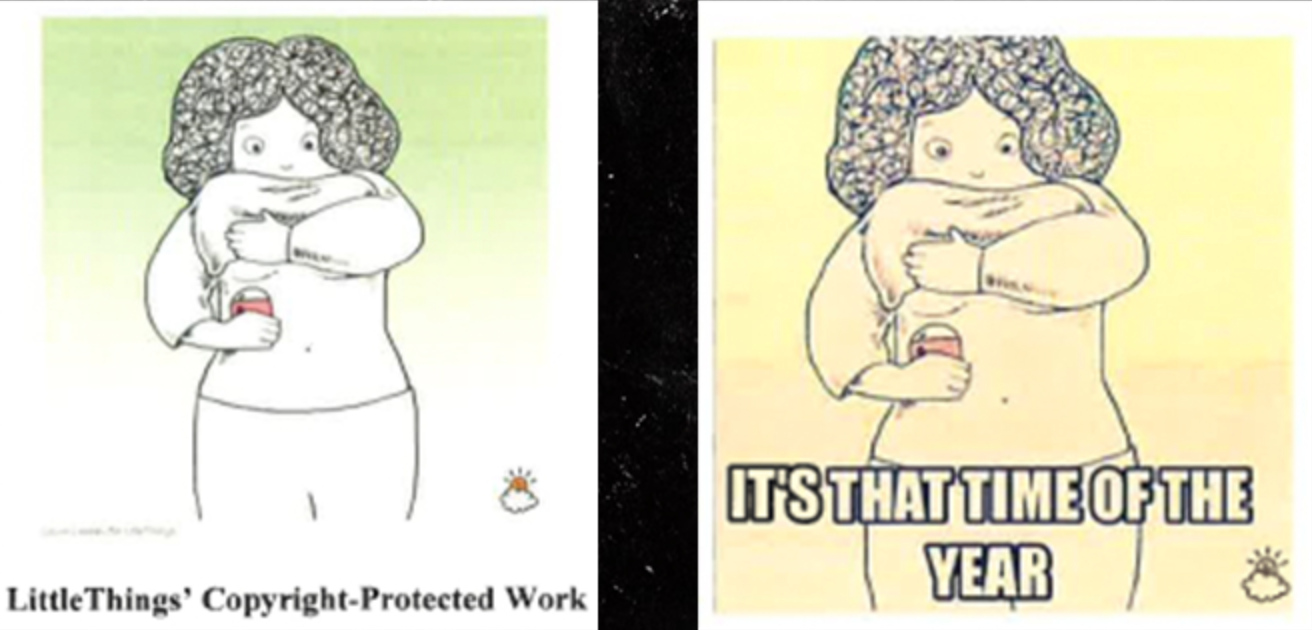
image: Instagram
Watch out meme accounts, Ludacris has been slapped with a copyright infringement lawsuit after he posted another party’s meme on his Instagram account – and you could be next. According to LittleThings, Inc.’s complaint, which was filed in the U.S. District Court for the Southern District of New York, musician/actor Ludacris is on the hook for using its illustration of a woman applying deodorant to the underside of her breasts without authorization to do so.
According to New York-based digital media site LittleThings’ complaint, “Defendant’s cyber-piracy and infringing activities display a conscious disregard for Little Things’ intellectual property rights and are calculated to, and actually do, deceive consumers about the source and quality of the respective products and services offered by Little Things and defendant.”
LittleThings alleges that Ludacris was “unjustly enriched” as a result of the copyright-protected meme and as a result, “LittleThings seeks a worldwide accounting and disgorgement of all ill-gotten gains and profits resulting from defendant’s inequitable activities.”

LittleThings’ meme (left) & Ludacris’ version (right)
The lawsuit at hand comes on the heels of similar suits involving the unauthorized usage of memes. Most notably, Charles Schmidt and Christopher Orlando Torres, the respective creators of the Keyboard Cat and Nyan Cat memes, filed suit in 2013 against 5th Cell Media and Warner Bros. for copyright infringement and trademark infringement. Turns out, the defendants used the cat characters without the creators’ permission in video game, Scribblenauts, and its sequels.
The case was settled out of court, with Warner Bros. officially licensing the two cat memes for use in the games (aka paying the creators a monetary sum in exchange for permission to use the memes in its video games). In connection with the lawsuit, Torres, the creator of Nyan Cat stated: “I have no issues with Nyan Cat being enjoyed by millions of fans as a meme, and I have never tried to prevent people from making creative uses of it that contribute artistically and are not for profit.”
Torres’s comment is an interesting one because it sheds light on how memes work; in order to be successful, they must be shared. This sets the stage for the complexity of the situation. While Torres has chosen not to go after the vast majority of people who have shared his Nyan Cat meme, he could. This is because he has, as the copyright owner, the exclusive right to make and sell copies of his work, the right to create derivative works based on his underlying work, and the right to perform or display his work publicly.
So, if you share his meme without his authorization (and absent a valid defense), you are infringing his copyright. Period. It does not matter, from a copyright perspective, that he put it online. It does not matter, from a copyright perspective, that millions of people may have shared it before you. Just because a photo or video has been posted online, e.g., on Twitter, Instagram or YouTube, does not mean that it can thereafter be reproduced by someone other than the copyright holder without having legal ramifications.
The Ludacris lawsuit also comes after the Fat Jewish came under fire for “consistently stealing jokes or deliberately not crediting people for content he posted to his account,” as Vulture put it at the time.
Ostrovsky’s social media tactic – and that of other similarly situated, such as Fuck Jerry, Beige Cardigan, and Betches – appears to consist primarily of stealing (or as Ostrovsky rather conveniently puts it, “commenting on”) others’ copyrighted material and monetizing it, thereby allowing himself to build a massive internet presence and spin that off into other ventures. [More about the legality of Ostrovsky’s meme game, here].
A rise in lawsuits in this area certainly does not bode well for these guys.







